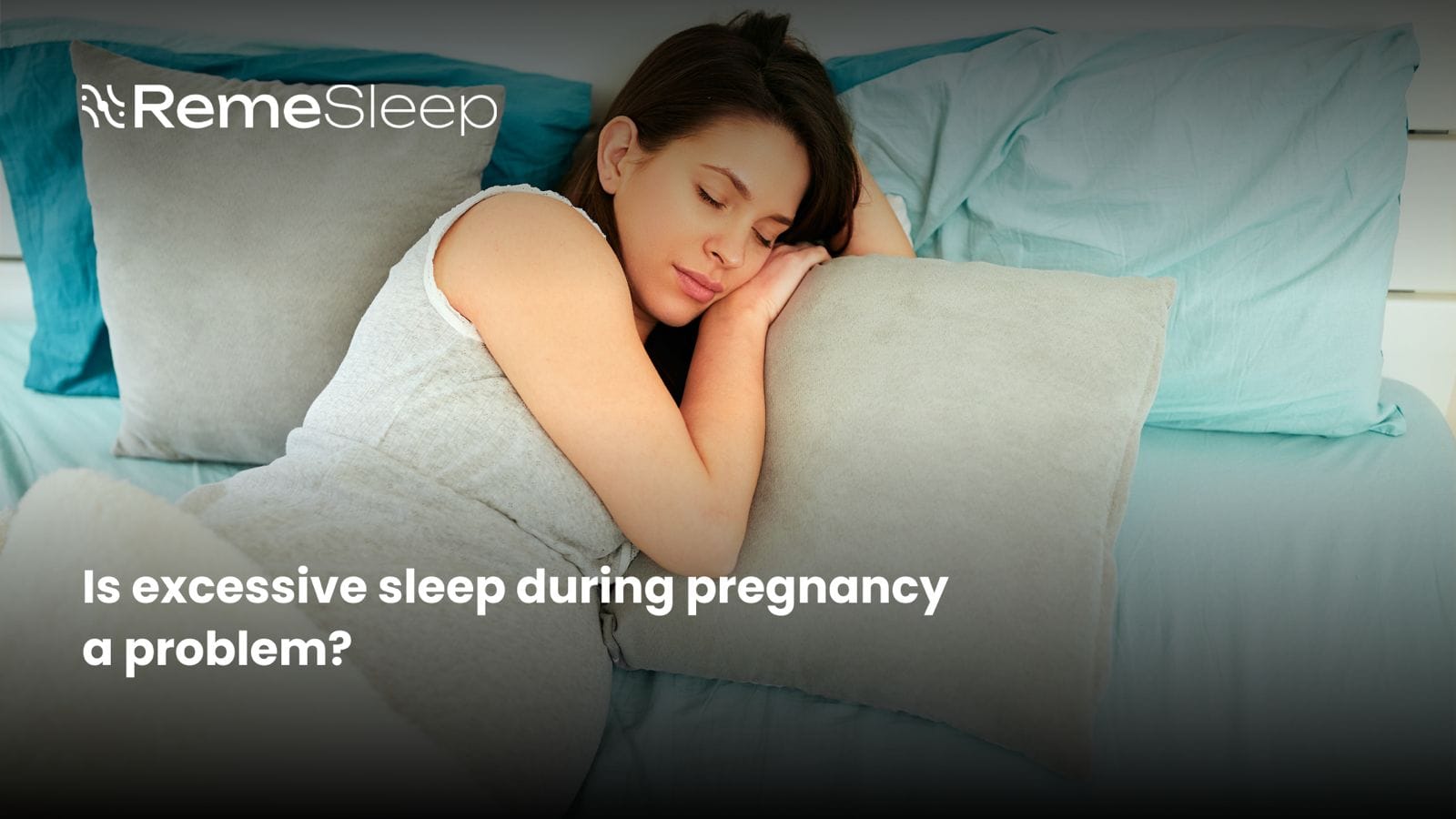Sleep apnea is often considered as loud snoring sounds or breathing pauses while one is sleeping. It’s a serious health risk affecting millions worldwide. But in the meantime the question arises can sleep apnea cause death?
Untreated sleep apnea increases the risk of life threatening conditions like heart diseases, stroke and high blood pressure. The common yet underestimated sleep disorder impacts your overall health and quality of life at the same time.
In this blog we’ll uncover the hidden dangers of sleep apnea and why timely diagnosis and treatment are crucial to protect your health and save your life as well. Don’t ignore the signs and symptoms as your safety depends on it.
What is sleep apnea?
Sleep apnea is a serious sleep disorder, characterized by repeated firings and pauses in breathing, which interrupt sleep, and can have negative health consequences. The most common form, Obstructive Sleep Apnea (OSA) results when relaxed muscles of the throat block the airway. Central Sleep Apnea is less common, and occurs when the brain does not send correct signals to begin breathing.
Additionally, Complex Sleep Apnea Syndrome involves characteristics of both OSA and Central Sleep Apnea. Frequently reported symptoms of OSA are loud snoring, where a partner reports breathing lapses, waking up gasping for air, waking with a headache, waking up with a dry mouth, and excessive daytime sleepiness.
Risk factors include obesity, large neck size, genetic traits, smoking, alcohol use, use of sedatives, and sedentary lifestyles. Untreated sleep apnea can result in high blood pressure, heart disease, stroke, or even driving accidents, and potential death.
The dangers of sleep apnea, its potential complications, and the pressing question, “Can sleep apnea cause death?” highlight the urgent need for early diagnosis and treatment to avoid life-threatening risks.
Is obstructive sleep apnea related to the risk of death?
Yes, Obstructive sleep apnea (OSA), the most common variety of sleep apnea, is highly correlated with mortality, particularly from cardiovascular disease, such as heart attack and stroke. People with OSA have documented events where airways are obstructed during sleep, create periods of low blood oxygen, elevated blood pressure, and put strain on the heart.
The severity of OSA directly impacts the all cause mortality risk. Severe untreated OSA not only disrupts sleep quality but can also trigger life threatening complications over the time. Early diagnosis and proper treatment are the proven key to reducing these risks and protecting overall health.
Complications of OSA
It can trigger serious health problems caused by sleep apnea, if left untreated. Beyond snoring and disturbed sleep, it impacts multiple organs and increases the risk of life-threatening conditions. There are certain complications as follows which can hamper one’s health conditions:
- Daytime Sleepiness & Accidents – Poor sleep quality from OSA increases fatigue, reduces focus, and raises the risk of drowsy-driving crashes.
- Sleep Apnea and Cardiovascular Disease – Untreated OSA puts extra strain on the heart and circulatory system, increasing the risk of heart disease, heart attacks, and irregular heart rhythms (atrial fibrillation).
- Sleep Apnea and High Blood Pressure – Repeated drops in oxygen trigger stress hormones, elevating blood pressure and raising cardiovascular risks.
- Stroke Risk – Low oxygen combined with high blood pressure significantly heightens stroke risk.
When left unmanaged, sleep apnea can silently damage vital organs, making early diagnosis and treatment essential to reducing long-term dangers.
Can You Die in Your Sleep From Sleep Apnea?
Sleep apnea and sudden death are indirectly connected while the condition itself rarely kills, untreated sleep apnea can cause life-threatening complications.
- Health impact of sleep apnea: Increases risk of heart disease, stroke, diabetes, and high blood pressure. Also, excessive strain on the heart may result in cardiac arrest and death or heart failure.
- Signs that your sleep apnea is causing life-threatening results: Long pauses in breathing, waking up gasping for air, chest pain, heart beating irregularly, and excessive daytime sleepiness.
- Severity is vital: Oxygen deprivation is caused by frequent interruptions or long pauses in breaths, with risk for irreversible injury to body organs.
- Accident risk: Sleepiness and inability to focus may increase accidents at work or on the road.
- Proven danger: Studies show acute, untreated sleep apnea dramatically increase risk of death, primarily from cardiac causes
While sleep apnea itself does not directly cause death, its untreated effects significantly increase the risk of fatal health conditions and accidents. This underscores the importance of timely diagnosis and consistent treatment to mitigate these risks.
Can Treatment Reduce Complications of Obstructive Sleep Apnea?
Obstructive Sleep Apnea (OSA) is more than just loud snoring or restless nights; it can lead to serious health problems if left untreated. The repeated pauses in breathing strain the heart, disrupt oxygen flow, and impact overall body function. Over time, this increases the risk of life-threatening conditions like heart disease, stroke, and diabetes. Fortunately, effective treatments such as CPAP therapy, oral appliances, and lifestyle changes can significantly reduce these risks and improve quality of life.
- Treatment Lowers Risks: Timely treatment reduces the risk of heart disease, stroke, and high blood pressure linked to OSA.
- Improved Oxygen Levels: CPAP therapy or other treatments restore normal breathing and oxygen supply during sleep.
- Better Heart Health: Treating OSA eases the strain on the heart, lowering chances of heart failure or arrhythmias.
- Reduced Daytime Sleepiness: Improves focus, memory, and reduces accident risks caused by drowsiness.
- Blood Sugar Control: Helps manage or prevent type 2 diabetes by reducing insulin resistance.
- Enhanced Quality of Life: Improves mood, energy levels, and overall well-being.
Central sleep apnea and the risk of death
Central sleep apnea (CSA) is not as prevalent as obstructive sleep apnea (OSA) but may be more severe, particularly when adjunct with astute bases of disease like heart failure. Unlike obstructive sleep apnea (OSA), CSA occurs when the brain and the respiratory muscles do not coordinate their function properly. CSA may cause problems with oxygen delivery, cardiac impairment, and any metabolic instability creating the potential for sudden death especially in populations with severe central sleep apnea and heart failure, given its importance to cardiac characteristics.
When to consult
Consult a doctor if you notice symptoms of sleep apnea such as loud, chronic snoring, pauses in breathing, gasping at night, or excessive daytime sleepiness. Early sleep apnea diagnosis helps prevent serious health problems like heart disease, stroke, and sudden death, while improving sleep quality, mental health, and overall well-being.






